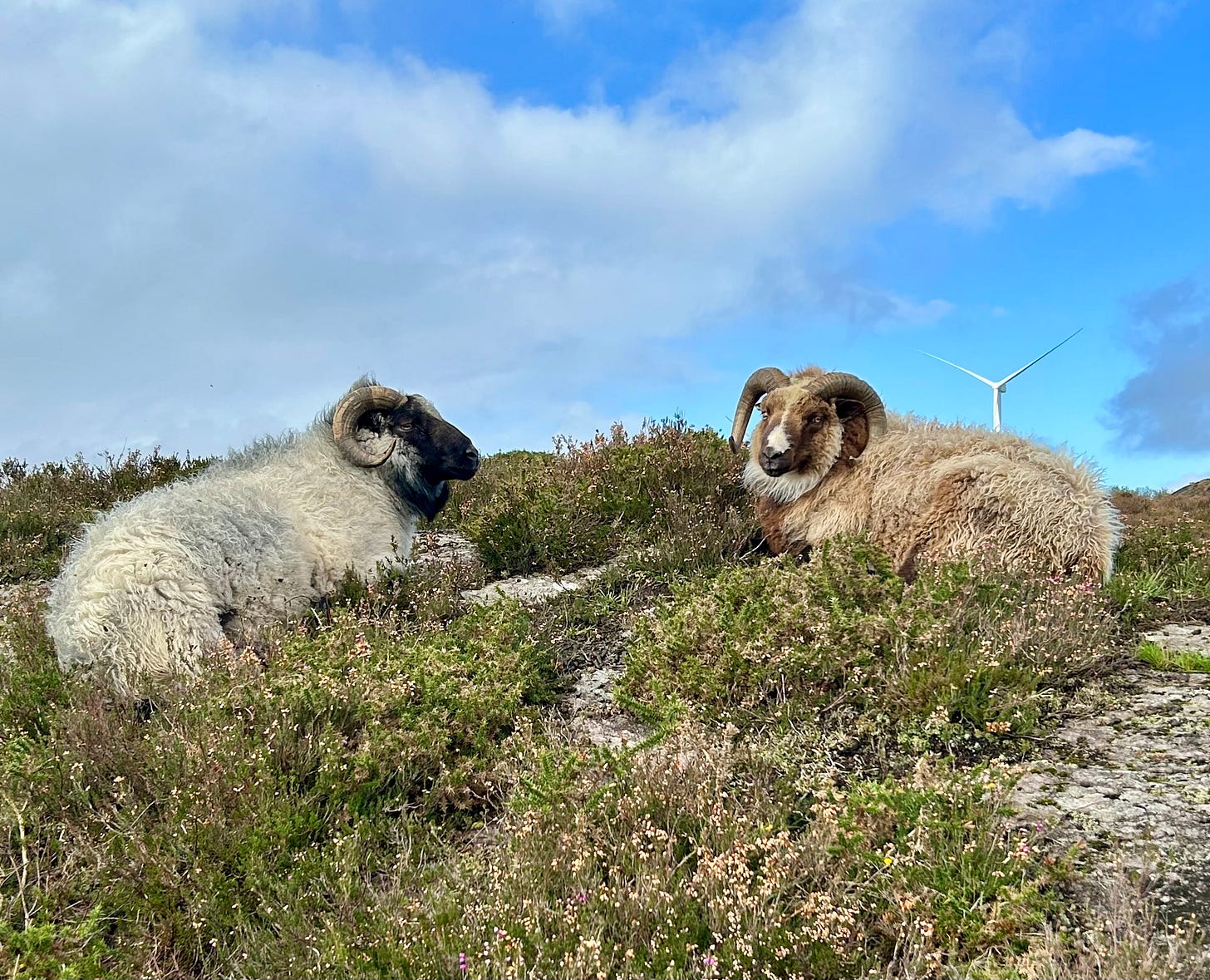Summer's End
stags, stinging nettles and the stories we tell, and some recommendations and readings from the archives
The sika stags are screaming summer’s end. The eerily human sound of them fills the hills like some tortured, wandering soul, echoes through the mist at dawn, punctuates the changing season. It is the end of the shepherding year and the beginning of a new one, the reason for the stags’ anguished screaming: breeding season. Well, almost. Our sheep are a bit behind the stags. Our rams are still lazy and fat on the summer’s forage, eyeing the ewes languidly from their ridge where they stretch their rolling bellies and chew their cud with the casual coolness of old players. They’re in no hurry. They know the game. Their season will come around. The ewes will come looking for them, wagging their tails and flashing their eyelashes soon enough.
It’s been a difficult year for us, as I’m sure it has been for many others. But I won’t go there this time. I believe that words have power, especially written words, so I’m not going to bemoan the challenges of changing weather patterns…

